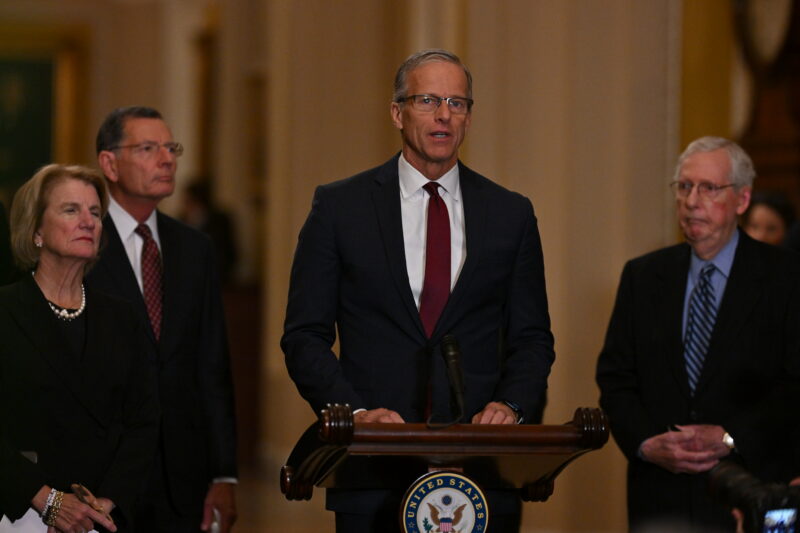
Courtesy
“Everything is copy,” Nora Ephron famously said. “You’d come home with something that you thought was the tragedy of your life: someone hadn’t asked you to dance, or the hem had fallen out of your dress, or whatever you thought was the worst thing that could ever happen to a human being — and my mother would say, ‘Everything is copy.’”
Nothing was off limits for Ephron, the beloved Jewish writer and filmmaker. She wrote about the parts of herself she didn’t like, those she did, and embarrassing encounters with all of them.
Dave Benett/Getty Images
After months of deliberation and calls from congressional and Jewish community leaders, the White House will name Emory University professor and historian Deborah Lipstadt to be the administration’s special envoy to monitor and combat antisemitism tomorrow, a source familiar with the matter confirmed to Jewish Insider.
Lipstadt is a noted Holocaust historian whose most recent book, Antisemitism: Here and Now, won a 2019 National Jewish Book Award. She has served as a consultant to and a fellow at the U.S. Holocaust Memorial Museum and is widely known for successfully defeating a lawsuit in which she was accused of libel for referring to writer David Irving as a Holocaust denier.

Gage Skidmore/Flickr
Freshman Rep. Madison Cawthorn (R-NC) began his first term in Congress earlier this year on uneasy footing with Jewish leaders in his district of western North Carolina. Even before assuming office, the 25-year-old political upstart had come in for criticism due to an old Instagram post in which he described Hitler as “the Führer” as well as an admission that he had tried to convert Jews to Christianity. Weeks after being sworn in, the congressman drew further scrutiny when he invoked a poem about the Holocaust while hawking campaign merchandise on Twitter.
In February, after months of fraught planning, Cawthorn finally met with a group of Jewish community leaders at his district office in Henderson County for a listening session in which they aired their concerns with his controversial rhetoric. Despite some tension, attendees largely emerged from the hour-long discussion with a sense of cautious optimism, characterizing the congressman as a careful and engaging listener notwithstanding his incendiary social media personality. At one point, a participant requested that he consider re-introducing a previously unpassed resolution addressing the rise in antisemitism, and Cawthorn asked a staffer to look into it.

Getty Images
The House of Representatives voted last night to approve $3.3 billion in security aid to Israel as part of Congress’s annual appropriations process. Tucked more than 100 pages into the massive Department of State and Foreign Operations spending bill was a new Oversight and Accountability provision governing the way aid is disbursed to American allies.
The goal of the new provision, according to the bill, is to ensure that countries that receive military aid from the U.S. use the money in a way that is consistent with U.S. national security policy. The secretary of state would be required to meet with countries who receive U.S. military aid to ensure that the government complies with U.S. law and in line with U.S. national security policy. If an aid recipient appears to be using the funds in a manner that goes against the agreed upon uses, the secretary of state must inform Congress. Although the language is new, it codifies an already existing policy that has been standard practice between the U.S. and foreign aid recipients for years, according to individuals familiar with the provision.

Bill Clark/CQ Roll Call via AP
Rep. Tom Malinowski (D-NJ), the vice chair of the House Foreign Affairs Committee and a former assistant secretary of state, told Jewish Insider on Wednesday that the U.S. must work with allies, including Israel, to prevent the abuse of technologies such as the NSO Group’s Pegasus software.
Recent reports revealed that authoritarian regimes, including Saudi Arabia, Rwanda and Kazakhstan, used the Israel-based NSO Group’s Pegasus hacking software to spy on journalists and activists. Any foreign sales of the software must be approved by Israel’s Defense Ministry.

Michael Vadon
Seven Republican senators are seeking to codify import-labeling rules implemented by the Trump administration on products produced in West Bank settlements, Jewish Insider has learned.
In November 2020, the Trump administration changed U.S. policy to allow goods produced in some Israeli settlements in the West Bank to be labeled as “Made in Israel.” Under the policy, products created in Palestinian Authority-controlled areas of the West Bank were labeled as products of the West Bank, and those produced in the Gaza Strip were marked as such.

Courtesy
In some ways, the special election next Tuesday in Ohio’s deep-red 15th Congressional District has come to be viewed as an early test of former President Donald Trump’s prevailing influence within the GOP.
The crowded Republican primary in the suburbs of southern Columbus is pitting a Trump-backed former energy lobbyist, Mike Carey, against Jeff LaRe, a state legislator endorsed by the moderate former incumbent, Rep. Steve Stivers (R-OH), who vacated his seat in mid-May to lead the Ohio Chamber of Commerce.

The Federal Emergency Management Agency’s Nonprofit Security Grant Program (NSGP) fulfilled less than half of the applications it received for 2021 grants, a FEMA spokesperson told Jewish Insider.
In total, nonprofits submitted 3,361 applications requesting nearly $400 million in NSGP funds, far outstripping the $180 million appropriated by Congress for the 2021 fiscal year. Of those, 1,532 applications were approved.



































